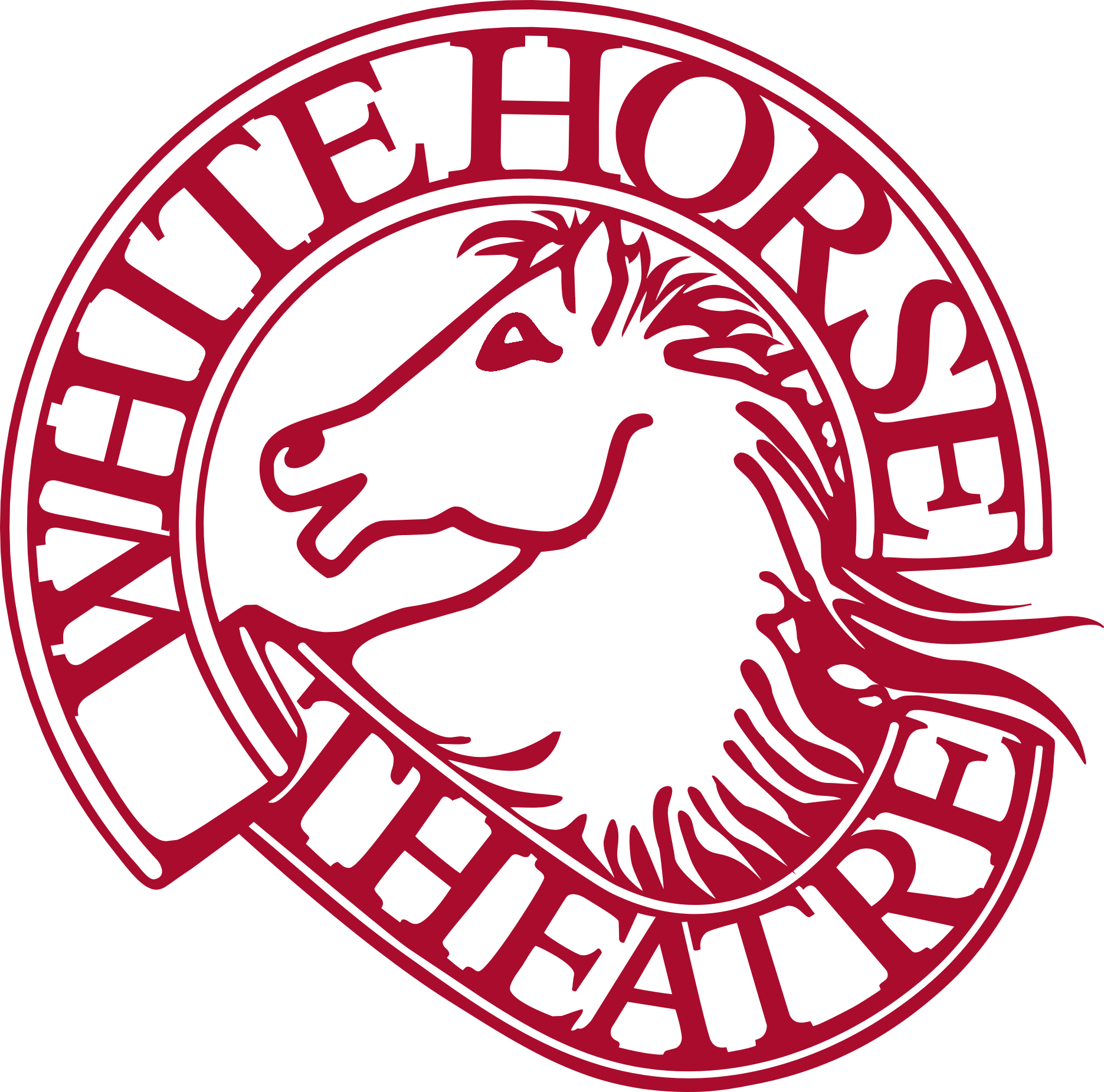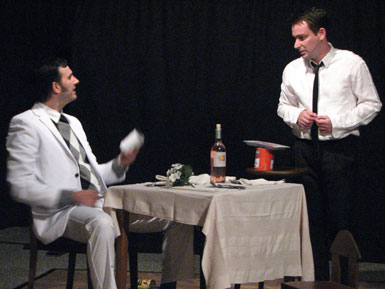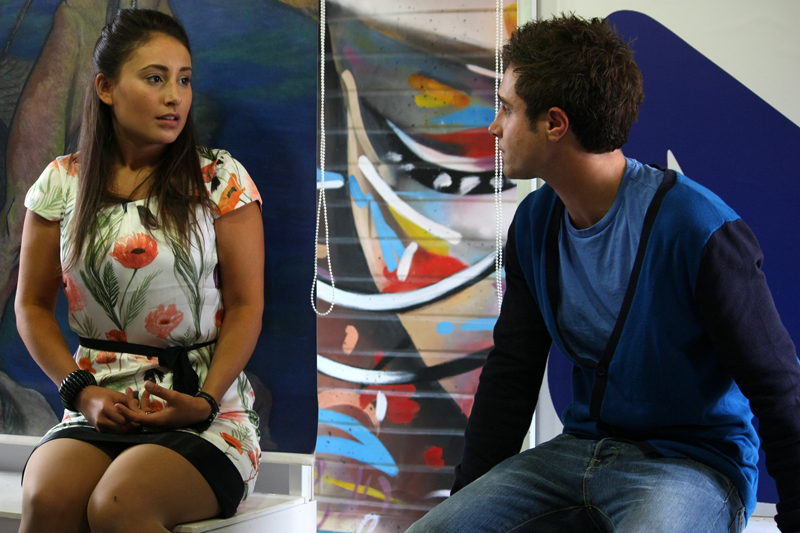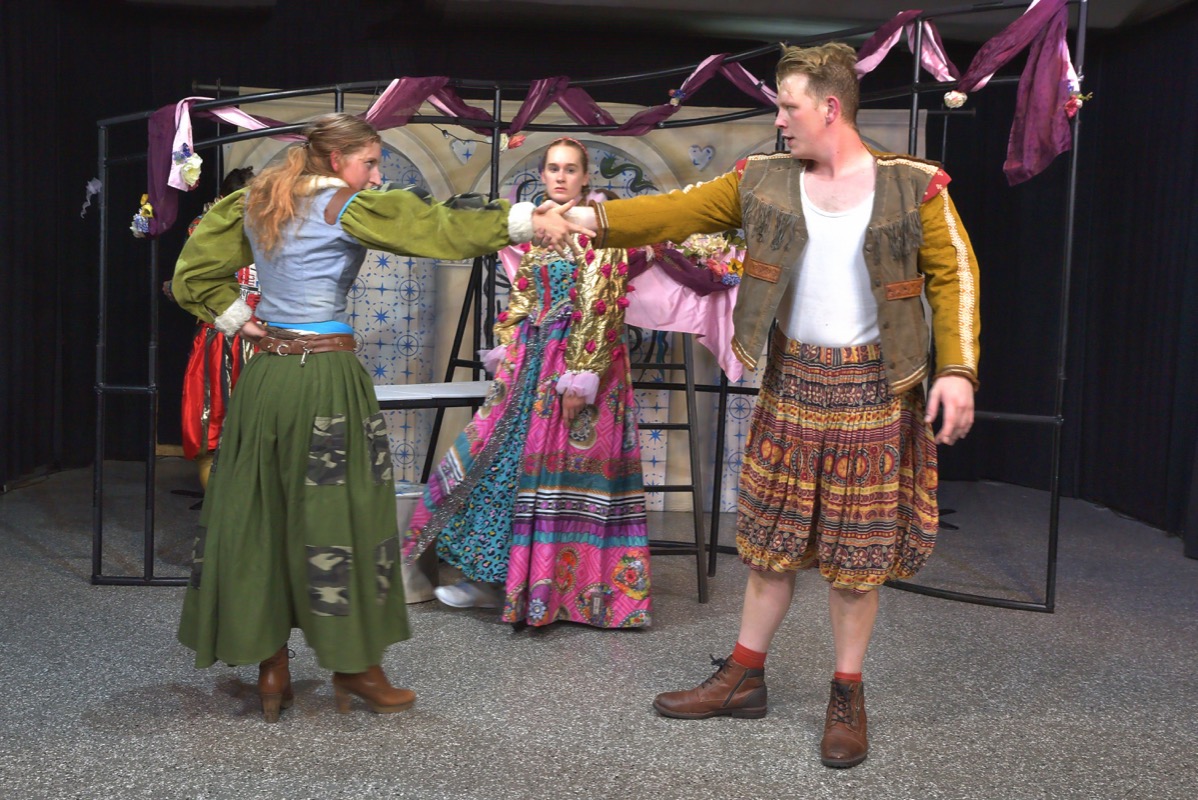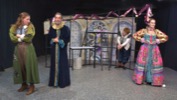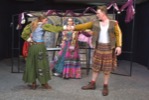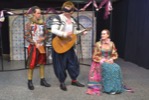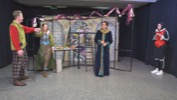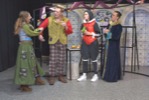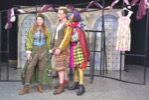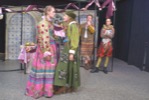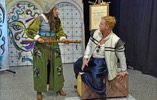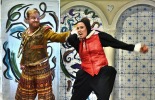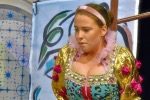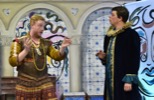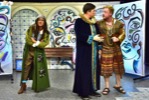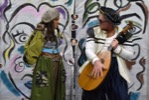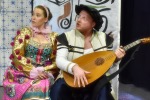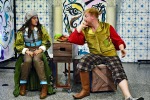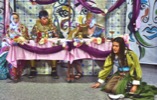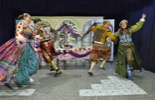de Peter Shaffer
Le sensible et inexpérimenté Bob a invité une fille à sortir pour la première fois. Il demande à son très avisé ami Ted de l'aider à faire bonne impression – une idée désastreuse, qui mène a un déchirant enchevêtrement de malentendus, de cœurs brisés et d'espoir perdus.
Photos de 'The Private Ear'
Extrait du texte de la pièce 'The Private Ear'
| Doreen: | I'm not too early? |
| Bob: | No, just right. [Bob shuts the door] Actually, it's only just half past. You're very punctual. |
| Doreen: | Unpunctuality's the thief of time, as my dad says. |
| Bob: | To coin a phrase. |
| Doreen: | Pardon? |
| Bob: | Let me take your coat. |
| Doreen: | Thank you. [She slips it off.] |
| Bob: | [Taking the coat]: That's pretty. |
| Doreen: | D'you like it? |
| Bob: | I do, yes. Is it real? I mean real leopard. |
| Doreen: | It's ocelot. |
| Bob: | Oh! [Imitating Ted] Very chic. |
| Doreen: | Pardon? |
